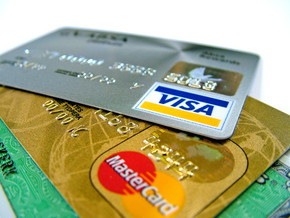There are many websites and television adverts promoting debt settlement. Most of these adverts are targeted at credit card debt. The prospect of settling your debts is alluring, but you have to go into the process with the right information.
As information on debt settlement gains popularity and more people start talking about it, a lot of untruths are bound to develop.
Below are some of the things that you may have heard about debt settlement that may not be true:
1. You automatically qualify for debt settlement if you have credit card debt
This is untrue. There is a rigorous screening process that is involved prior to accessing debt settlement. You therefore just can’t go on a spending spree with your credit card and think that your loan will be forgiven.
Your circumstances have to justify debt settlement. For instance, if you have lost your job as a result of injury, it’s in the interest of the creditor to settle your loan because it doesn’t seem likely that you will ever repay your debt.
2. Only a debt settlement company can negotiate for settlement
This is also not true. You can negotiate for debt settlement directly with your creditors. The downside of this approach is that you have to learn a lot of what debt settlement professionals know.
The benefit of negotiating with your creditors directly is that you can get to persuade them to prevent further accrual of interest and fees as a starting point.
Debt settlement can take a long time to negotiate. If you are impatient with the wait, it’s probably better to negotiate for yourself.
If you don’t trust in your ability to negotiate a get a good deal, hire professionals to do it for you.
3. Debt settlement fees should be paid upfront
This is not true. There are rules that prohibit upfront payment to debt settlement companies. The only time you should pay is when your debt is successfully settled.
If you are accessing an online debt settlement service that insists on upfront payment, you could be falling for a scam.
4. The debt settlement company controls the escrow account
It is also untrue that the debt settlement company has control of your escrow account. The account is entirely yours and only you can access it.
5. Debt settlement will impact negatively on your credit score.
If you stop making payments during debt settlement negotiations, your credit score will suffer. It will work to your advantage to involve your creditors so that they are aware of your situation.
Once your debt is settled, it will go on your record that you failed to pay your debts and this will definitely affect your credit score.
6. All debts can be paid with debt settlement
Debt settlement is tailored for unsecured debts such as credit card debt. There are some debts such as tax payment arrears, student loan debt and child support arrears that cannot be settled. Secured debts such as mortgage and car loan do not qualify for debt settlement.
Now that you know the truth, you can apply for debt settlement from an informed position.
About the author
Jack Winslet has been a credit counselor for 10 years. He has seen many debtors make misinformed decisions about debt settlement when they want to settle credit card debt. Visit his site to read more.

